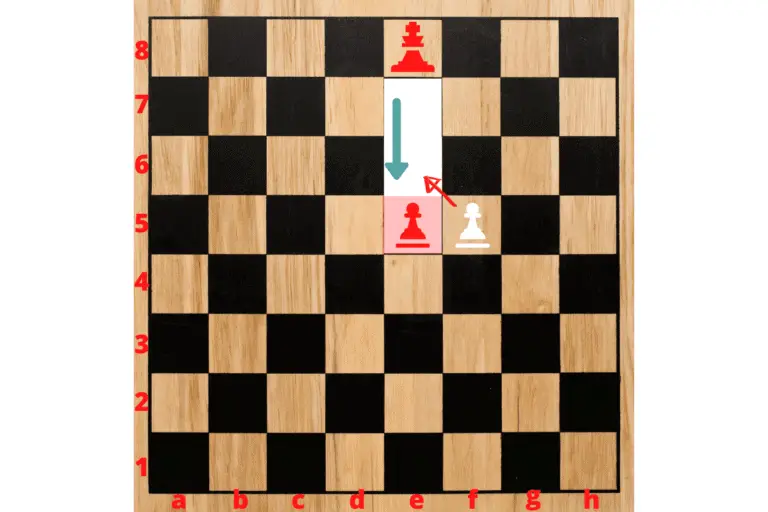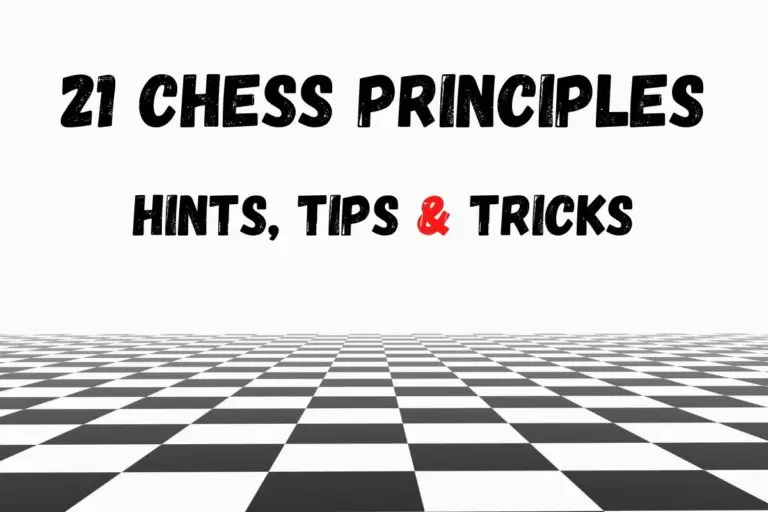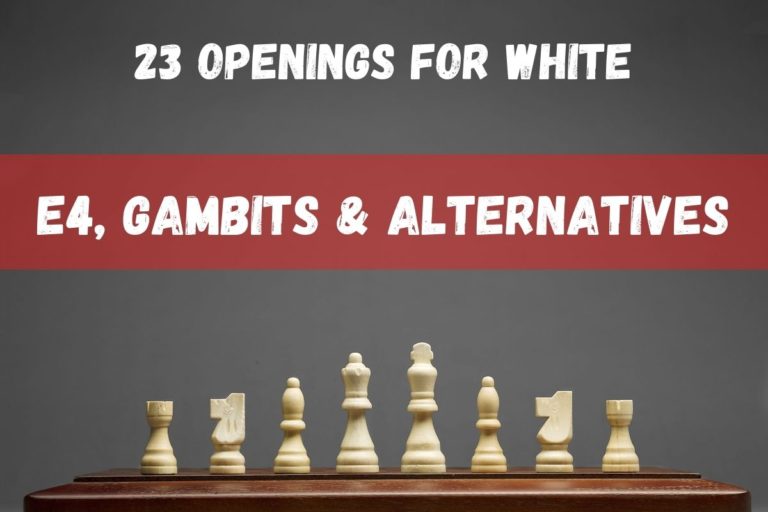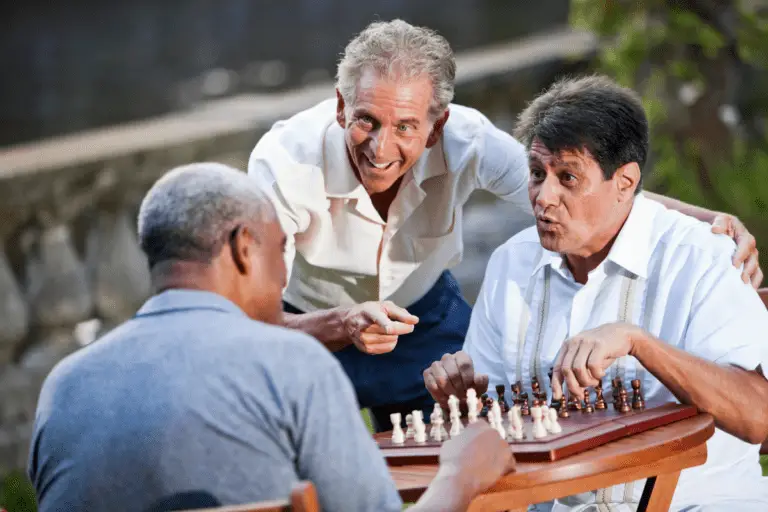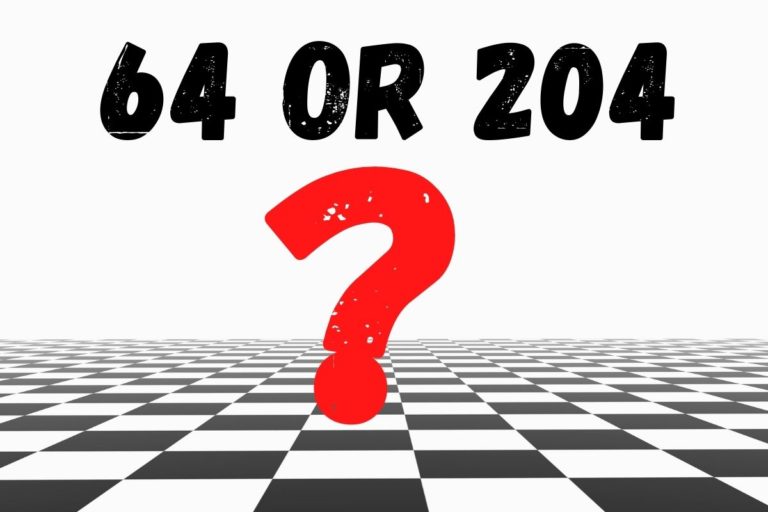Blunder in Chess: What is it? How to Avoid & Win More Games
⭐⭐⭐ Take 7 minutes to read and improve your chess game ➡️ : This article was first published on, and is Copyright of Chessquestions.com
This article will look in detail at blunders in chess, what they are, how to identify when you make one, how to prevent making them and what to do if you have already blundered. If anything, to understand all of these aspects we need to know as chess players what a blunder is in the first place.
A blunder in chess is a ´critically bad move´. It is deemed worse than an inaccuracy and worse still than a mistake. Often a Blunder in chess is a turning point in a game whereby a significant advantage, and frequently the game, has been handed to the opponent.
There are also inaccuracies as well as mistakes in chess, each of which differs slightly and subjectively from a blunder. This article will explain what they are and how to stop making blunders in chess.
Make Less Blunders and Win More Games
It is an absolute fact that if you make less blunders when playing chess, you will lose fewer games. This should result in you winning more games, and increasing your rating.
Don´t get hugely caught up with with openings, mid game and end game strategies until mastering the art of not making blunders. Avoiding blunders and mistakes are fundamental to progressing your chess playing skills, and focussing on a systematic blunder check for every move is a good habit to get into.
This article will point out some of the more obvious blunders. If you can keep them in mind and totally avoid making one of these mistakes in your next ten games, I guarantee your rating will improve, and your confidence in playing will rise at the same rate, as you will playing knowing you will be giving away less advantage than you were previously.
Examples of Blunders in Chess
Here are some examples of what’s a blunder in chess – There are 4 types of bad moves in chess, beginning with an ´inaccuracy´, then moving on on severity to a ´mistake´ and again a worse move still would be the ´blunder´. A missed win is the worst bad move in chess.
- Inaccuracy ! ?
- Mistake ?
- Blunder??
- Missed Win –
Each of these ‘bad moves’ is highlighted with symbols on chess.com and other engines when assessing the moves of a game, and these notes can also be used by players when making chess notation during a game
An exclamation mark and a question mark signify an inaccuracy, a single question mark is a mistake, whilst a double question mark is a blunder, and working down that list you can see how the symbols do represent worsening moves.
There are slight and subjective differences between blunders and mistakes in chess and what an amateur player may be deemed to have been a blunder, an experienced or even professional player may deem the same move in the context of a game between better players to be only a mistake.
An inaccuracy or mistake will often be recoverable. The reason a blunder is more serious is often you will have given a significant advantage in the game to the opponent and the position becomes irrecoverable.
Over the Board Blunders
Over-the-board blunders can be infuriating when you realize what you have done immediately and lose a valuable piece perhaps, and are equally so when you analyze a previous game and see how you blundered to give the advantage to your opponent.
Blunders can include ´hanging pieces´. That is, to move a piece into an undefended position so that it can be captured without retribution or tactical element at all.
By the same token, a blunder may not hang the piece directly but might cause the removal of defence of another piece or tactically important square it was controlling that could turn the game.
A blunder could also be a move that opens up a players defence so badly that an unavoidable checkmate can be achieved by the other player within a couple of moves
Given that making a blunder is a significant mistake and hands a huge advantage to the other player, it often results in the other player winning the game within a few moves or, especially in high level chess games, the player making the blunder soon resigning his position and the game
As frustrating as they can be, they are ultimately common mistakes and avoidable, unlike a huge blunder that can be made in online chess games which are entirely unavoidable and something that even the greatest players in the world have to contend with from time to time and that is the mis-click
Getting into time trouble can often lead to blunders being made. When time is running out for your moves you have to make decisions more quickly and blunders become more prevalent.
Always allow yourself analysis time either after the game or at a later time to find where you made blunders. This is key to improving your game by being able to avoid making the same blunders again
Online Blunders
There are some blunders that are made online that would not be made in over the board chess. They are mis-clicks.
They are the most frustrating blunder, inaccuracy or simple mistake a player can make, and once made there is nothing you can do about them.
They are often the most ridiculous and embarrassing blunder you can make in chess and are virtually impossible to avoid. Everyone who plays online chess will have made a mic-click blunder at some point.
If you are just starting out playing chess and reading this to learn more about blunders, be aware, you will make a mis-click blunder at some point, and it is very likely it will be so bad as to cost you a game.
The most infuriating are those when you miss a checkmate opportunity, or really strong move into a critical square after forcing your opponent to make a move and gaining a huge advantage, only to give it away a second later with a mis-click of the mouse.
How to Identify an Opponents Blunder
You should have a basic checklist of things to do after every move is made on the chess boards, including both your own and your opponents.
The first of these is to reassess the position on the board. Take a look at your opponents move. You are looking for what his intention might be for the move, and what his next move might be, but also take a look and see how his move has changed the defence of his pieces.
Has he left a square or a piece undefended? Something you can capture without trading.
Be careful of traps at this point, not all moves that look like a blunder turn out to be just that. Once again, run through as many possibilities and outcomes of your next move before jumping on your opponent’s apparent blunder. They may have made a tactical blunder to tempt one of your pieces away from is its current square for a longer strategy to play out in the game.
How to Avoid Making Blunders
The best way to avoid making blunders in chess is to play as much chess as possible. The more you have played the less likely it is that there will be a move that could cause problems for your position or give up an advantage to an opponent.
It is a good idea to watch a video on YouTube, there are a large number of videos that highlight blunders made in games. Don´t worry even the best players will make a blunder from time to time.
7 Tips to Avoid Blunders in Chess
- Double check every move before you make it
- Don´t just react to your opponents move, ask yourself why they have made it and try to assess what their next move might be
- Don´t give up a piece unless it is a genuine sacrifice, trade or part of a deeper tactical strategy in your game
- Ensure there is no undefended direct threat within a couple of moves on your king
- Always check if an opponent hangs a piece. Is it a genuine blunder or a potential trap?
- Assess if there is a position to put your opponent in check
- Can any of your pieces be forked by your opponent following your next move?
- Are you leaving a significant threat on your King within a couple of moves.
Blunders in Chess What To Do If You Make One
What to do when making a blunder may be dependant on the level of chess you play at, or the level of the opponent you are playing
Beginner chess blunders
In a low-level game of chess between beginners, it is quite possible and often the case that a blunder may not essentially lose a player a game. The opposing player has to be of sufficient skill to identify the blunder themselves and take full advantage of it and it is often the case that this is not done.
If you are a beginner and have made a blunder, the chances are you are not going to realise until the game is assessed post result. Just keep playing, the chances are also that your opponent will not take full advantage of the blunder and make further weak moves.
I still make blunders today that I don´t realise I made and remain oversights until I go and analyze the game after or later with a chess engine.
Intermediate Player Level Blunders
The better a player becomes and the higher the rating of players, one would expect fewer blunders to be made, and when they do happen, for the opponent to be able to make the most of the game and at the very least not lose the game.
Expert Level Blunders
At the very highest level, a Grandmaster making a blunder is a rarity, and if made would be the worst feeling, and would almost certainly cost the player blundering the game who, when realising would resign. Indeed, if a player is forced into a position whereby he has no option to play a move that would be deemed a blunder, it is most likely they will make decisions to resign before having to blunder.

